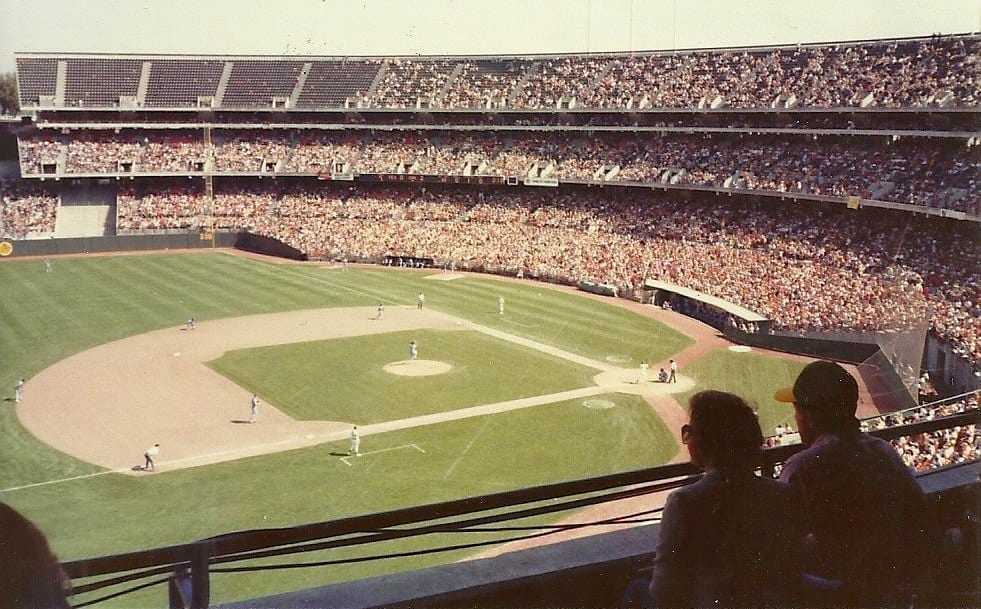5/20/2015
Baseball is a game of eternal youth, and nothing may be more evident of that than listening to 95 year-old retired Supreme Court Justice, John Paul Stevens talk passionately about the future course of the sport. In a May 15th speech in front of the Sports Lawyers Association in Baltimore, Justice Stevens recalled his extensive legal experience in baseball affairs prior to his ascension to the bench, with extensive focus on baseball’s antitrust exemption. Unlike most business, Major League Baseball (MLB) is able to dictate much of their own parameters of competition as opposed to being primarily dependent on market forces. Stevens recalled how he first worked as legal counsel in 1952 for the House of Representatives’ ultimately fruitless investigation into MLB’s monopoly, and then later helped team owner, Charles A. Finley, relocate from Kansas City to Oakland in 1967, providing legal arguments in order to convince other owners to approve the move. In his speech, Stevens said “It simply makes no sense to treat organized baseball differently from other professional sports under the antitrust laws.” Baseball was granted the exemption in 1922, when former Justice Oliver Wendell Holmes wrote in his opinion that the sport was based on a series of local exhibitions and therefore should not be considered as interstate commerce governed by antitrust laws.

Photo Courtesy of Nathan Hughes Hamilton/Wikimedia
Now, the current Oakland Athletics franchise is attempting to relocate down the road to San Jose, a move that cross-bridge rival, the San Francisco Giants team ownership is fighting, believing that it encroaches on their rightful territory in violation of the antitrust exemption. Following a 9th Circuit Court of Appeals ruling in February that upheld the Giants’ claim, the city of San Jose filed a petition with the Supreme Court in April, scheduled for review by the Court in the fall. The city’s petition states, “Professional baseball’s antitrust exemption is a relic from another era, the last vestige of a time when ‘interstate commerce’ meant something much narrower than it does today. The exemption would be tolerable if it were merely a harmless curio, like a quill pen or antique furniture. But today it is far from harmless.” Stevens made reference to the case in his speech, saying “the San Francisco Giants could not prevent the A’s from moving their ball club to Oakland in 1967 but can now prevent them from moving from Oakland to San Jose.” Baseball antitrust expert and University of Wisconsin professor, Brad Snyder, calls Stevens’ speech noteworthy, in that it “serves as a powerful amicus brief in the city of San Jose’s favor. The justices should take notice.”
Modifications to the exemption would not be unprecedented. Curt Flood, 12-year veteran and All-Star outfielder for the St. Louis Cardinals was traded in 1969 to the lowly Phillies. Under the “reserve-clause” given to MLB in the 1922 agreement, owners generally controlled the fate of players and their contracts regardless of tenure. 1972’s Flood v. Kuhn was a landmark Supreme Court decision in which the clause was upheld, however the arguments found loopholes in the reserve clause, and thus the antitrust exemption to the extent that the National Labor Relations Board was able to convince an arbitrator that this aspect of the exemption falls under labor law, granting players free agency in 1975. Also, a similar situation to the Oakland-San Francisco fight occurred last decade around the nation’s capital, when Baltimore Orioles owner Peter Angelos fought MLB’s decision to move the Montreal Expos to Washington DC in 2005, with Angelos accepting a settlement from MLB and shared television revenues. Although some legal squabbling over broadcast propriety persists, both franchises have co-existed for a decade. MLB has until June 17th to respond to the petition. It is possible that similar caveats to the exemption may be carved out to appease the three bay-area cities.
Sources:
National Law Journal – Tony Mauro
San Francisco Chronicle – Phil Matier and Andy Ross
The Atlantic – Joe Pinsker


Join the conversation!